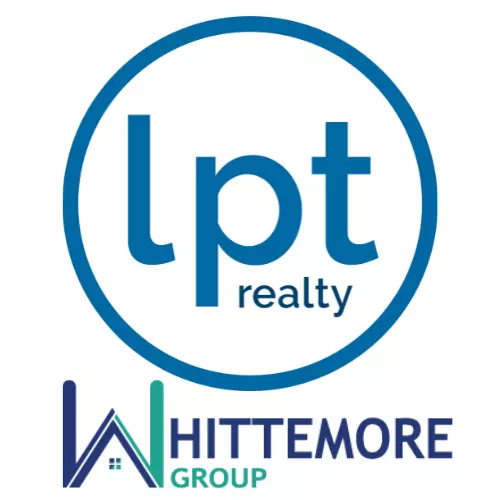The Lowdown on Home Loans
The Lowdown on Home Loans
This is a brief overview and insight into the different loan products that you can use to buy a home, and how to leverage your home equity.
The most traditional loan is a conventional loan.
Most conventional loans are fixed rate loans, meaning that throughout the term of the loan, it's always going to be a fixed rate. The most common loan terms are typically 30-year, 20-year, and 15-year terms. Obviously, the lower that the yearly term is, the higher the price is going to be because you're paying it off in a much more expedient manner. The interest rates on those will vary depending on which bank and which sort of strategy that you're using. When it comes to conventional type products, you also incur this fee called a PMI, or primary mortgage insurance. What that essentially is, is that you're paying money to the bank to ensure them that you are seriously going to pay off the loan. It's essentially a fee until twenty percent of the principal is paid off. During that time, you can give your bank a call and they should adjust it to get rid of your PMI, so that you're only paying principal and interest, and of course, the other fees that are associated with the mortgage which are taxes and insurance.
Adjustable rate or ARM mortgages
With an ARM, you probably guessed that the interest rate adjusts. The interest rate is usually based off some index. They sometimes use something through the stock market or something through the banks, but it will adjust based on the market. There are also variable rates, hybrids, and option ARMs, but if you really want to get some good details on those, talk to a bank in order to see exactly what those are.
Balloon mortgages
These loans are usually 10-year terms and have low interest rates. Sometimes, the monthly payments are only interest. However, at the maturity of this loan, you owe a big lump sum of the loan balance. It “balloons up” as the name would suggest.
Interest only mortgages
These are exactly what they sound like; you pay just the interest on a loan. Then at some point, when it matures, you'll have to pay higher rates over time. We haven't seen a whole lot of these lately; they were pretty popular before the housing bubble.
Reverse mortgages
These mortgages are designated for seniors. If they have equity in their home, the bank will allow them to borrow from their home’s equity by way of lump sum, monthly payments, or revolving credit. This is provided they stay in the home until death. If they do decide to move, then all the money they had requested is going to be due at that time. And normally the money will be taken out of funds that seniors were saving for retirement. These types of loans can be tricky, so make sure to really look into them before making a decision to use them.
Government-backed loans
These include FHA, USDA, and VA loans.
FHA Loans are federal housing administration loans. They help people actually buy a home that they normally couldn't afford. A down payment typically is going to be about 3.5 percent of whatever the purchase price is. As long as you can afford the down payment, this is definitely an option for people with lower credit scores. A downside to an FHA loan is a thing called MIP, which is mortgage insurance premium. This used to be like a conventional loan in which after you pay off 20% of your principal, it goes away. That has changed, so now MIP sticks around indefinitely with the loan until you can either refinance or find another way to pay that off. So that's unfortunately an extra payment, but it does, however, help people with bad credit to at least start the process of gaining an equity over time.
USDA loans are also designed for people with low credit. They usually have very low or minimal interest rates, and no down payment. They’re more for agricultural development areas where they want people to move into. So, if the area that you're looking to purchase a house in qualifies for that, this might be something to look into.
VA loans are for active duty members and veterans of the United States Armed Forces who have served at least six months to a year. The VA loan is a great product because you don't have to put any money down to purchase a house. The only catch with this loan is what they call a VA funding fee. The VA funding fee currently, if you're a first-time home buyer, is usually 2.15 percent of whatever your purchase price is that is stacked on top of the loan amount that you're going to finance over the term of the mortgage, which in most cases is 30 years. If it's a subsequent use of your VA loan, it's usually 3.3 percent that is stacked on top. Right now, according to the VA guidelines, you can go up to $484,900 of your benefit without a down payment. You can go above that, but you’ll have to put 20 percent down. Another nice caveat about the VA, is that if you are a disabled veteran and you have at least 10 percent disability, then you will not incur any funding fee at all, which is fantastic.
Combine mortgages
This is when you get two mortgages, one is 80% of what the home value is, then you get another loan for the other 20% to avoid PMI. Usually that other 20% mortgage that you're taking out has a much higher interest rate, so it could get expensive. PMI is also pretty expensive, so you'll have to run the numbers for those.
Take out a second mortgage on your house
If you've gained equity in your house over time, you can take out another loan against that equity and use it to either upgrade your house, or for whatever life throws at you. I would caution you not to take out a second mortgage if you're planning on, or if there's a possibility, of you selling your house in the preceding two to three years. As long as you plan to stay in your home for at least that amount of time, and the housing market continues to climb like it has been, at about three to four percent nationwide, then you should be pretty safe. Just know that you could back yourself into a corner if you did have to sell that house. You could end up having to rent it out until the equity evens itself out.
This was a quick overview of various types of loans. There are a lot of other mortgage products out there, so if you have any questions, definitely talk with your mortgage loan originator or your bank. If you want some direction on who to talk to, you can talk to a real estate professional. We would be happy to answer any questions you have or point you in the direction of someone who can, so feel free to contact us!
Also check out these steps that you can anticipate during the home mortgage process!
Categories
Recent Posts










GET MORE INFORMATION

![<!-- begin Widget Tracker Code --> (function(w,i,d,g,e,t){w["WidgetTrackerObject"]=g;(w[g]=w[g]||function() {(w[g].q=w[g].q||[]).push(arguments);}),(w[g].ds=1*new Date());(e="script"), (t=d.createElement(e)),(e=d.getElementsByTagName(e)[0]);t.async=1;t.src=i; e.parentNode.insertBefore(t,e);}) (window,"https://widgetbe.com/agent",document,"widgetTracker"); window.widgetTracker("create", "WT-JTWWXHJC"); window.widgetTracker("send", "pageview"); <!-- end Widget Tracker Code -->](https://cdn.chime.me/image/fs/cmsbuild/2022820/12/h200_original_12b23b22-4a2a-4f96-8df9-274c8346f371-png.webp)